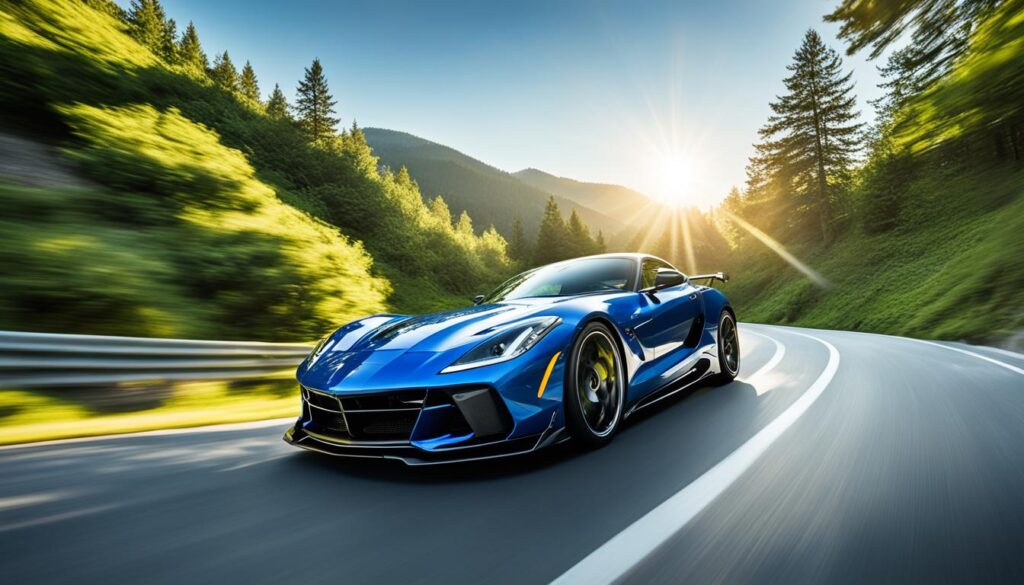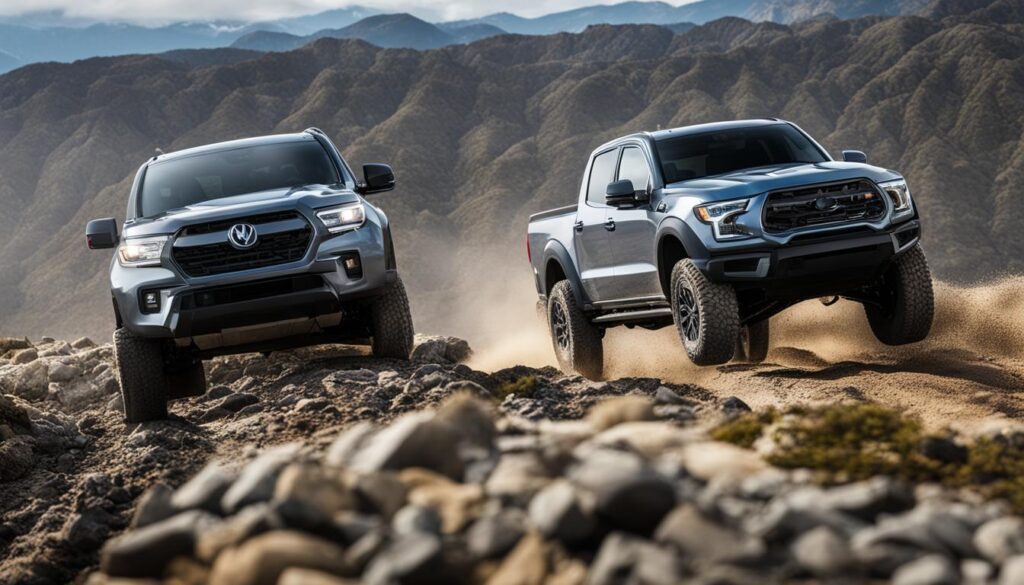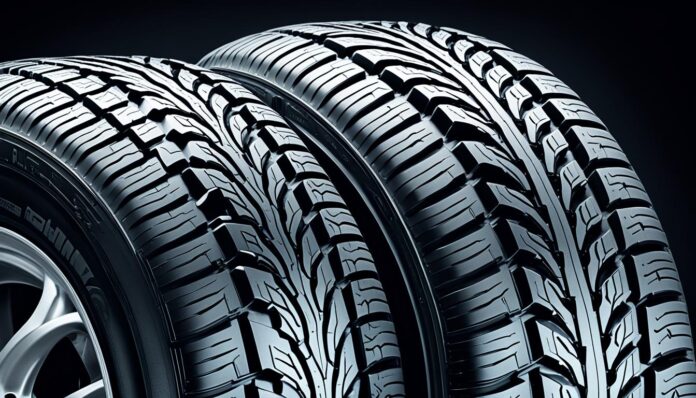As an Amazon Associate, I earn from qualifying purchases
When it comes to choosing the right tires for your vehicle, two top contenders that often come to mind are Yokohama and Michelin. Both brands have a long-standing reputation in the tire industry, but which one should you ultimately go for? In this article, we will delve into a comprehensive comparison of Yokohama tires vs Michelin to help you make an informed decision.
Yokohama, a Japanese tire manufacturer established since 1917, has earned a solid reputation for producing high-quality tires for passenger cars, SUVs, and trucks. Michelin, on the other hand, is the leading revenue tire manufacturer globally and is well-known for its innovative and award-winning tire products.
Through an in-depth analysis of performance, pricing, and consumer reviews, we aim to provide you with a clear understanding of the key differences between Yokohama and Michelin tires. Whether you’re looking for the best Yokohama tires, seeking an insight into Michelin’s top-rated models, or interested in a thorough comparison between the two brands, this article has got you covered.
Key Takeaways
- Yokohama and Michelin are renowned tire manufacturers with distinct strengths and offerings.
- Yokohama excels in off-road performance with its Geolandar A/T G015 tire.
- Michelin dominates in various tire segments, particularly in ultra high performance and grand touring all-season categories.
- While Yokohama offers competitive pricing, Michelin’s products often outperform in terms of overall performance and consumer satisfaction.
- Considering your specific needs and priorities, Michelin tires are generally the recommended choice when comparing Yokohama tires vs Michelin.
Evaluation Methodology
When comparing Yokohama tires vs Michelin, it is crucial to employ a comprehensive tire comparison methodology. In this section, we will outline the tire comparison methodology we used to objectively evaluate and compare the performance, pricing, and quality of Yokohama and Michelin tires.
To ensure a fair and accurate assessment, we relied on Tire Rack’s tire rating charts. Tire Rack is a trusted source that provides detailed data and rankings for various tire models. Their extensive database allowed us to access objective and reliable information for our comparison.
By utilizing Tire Rack’s tire rating charts, we were able to examine key performance metrics such as wet and dry traction, handling, ride comfort, noise levels, treadwear, and winter/snow performance. These factors are crucial in determining the overall performance and quality of tires in different driving conditions.
In addition to performance, we also considered pricing as an important factor in our evaluation. Tire prices can vary significantly between manufacturers and models, and it is essential to assess the value for money provided by each tire brand.
It is worth noting that our evaluation methodology focused solely on Yokohama and Michelin tires to provide a direct comparison between these two brands. We did not consider other tire manufacturers in our analysis to ensure a comprehensive examination of Yokohama vs Michelin.
Now that we have outlined our evaluation methodology, we can proceed to the specific tire comparisons in each segment. Let’s delve into the performance, features, and pricing of Yokohama and Michelin tires to determine the best tire choice for different driving needs.
Max Performance Summer
In the max performance summer tire segment, we will compare Yokohama’s ADVAN Apex V601 against Michelin’s Pilot Sport 4S. Based on direct test data, the Pilot Sport 4S outperforms the ADVAN Apex V601 in wet, dry, and noise/comfort categories. However, the ADVAN Apex V601 offers a more competitive price point. Overall, the Pilot Sport 4S is the clear winner in this category.

“The Michelin Pilot Sport 4S is known for its exceptional handling and responsiveness on both wet and dry road conditions. Its innovative tread pattern and compound deliver superior grip and traction, allowing for precise cornering and excellent stability.”
Key Features Comparison
| Michelin Pilot Sport 4S | Yokohama ADVAN Apex V601 | |
|---|---|---|
| Wet Performance | ✅ Superior wet grip ✅ Effective water evacuation ✅ Reduced risk of hydroplaning |
❌ Slightly lower wet performance |
| Dry Performance | ✅ Excellent dry handling ✅ Enhanced stability ✅ Precise steering response |
❌ Slightly lower dry performance |
| Noise/Comfort | ✅ Low road noise ✅ Smooth and comfortable ride |
❌ Slightly higher noise levels |
| Price | 💲 Higher price point | 💲 More competitive price |
Ultra High Performance All-Season
In the ultra high performance all-season tire segment, we will compare Yokohama’s ADVAN Sport A/S+ against Michelin’s Pilot Sport All Season 4. These tires are designed to provide exceptional performance in a variety of weather conditions, making them a popular choice for drivers seeking year-round traction and handling.
When it comes to performance, the Pilot Sport All Season 4 stands out as the clear winner. It outperforms the ADVAN Sport A/S+ in all categories, particularly in wet conditions where it delivers impressive grip and control. Whether you’re navigating rainy roads or encountering light snow, the Pilot Sport All Season 4 offers the confidence and precision you need.
The Pilot Sport All Season 4 sets the bar high for ultra high performance all-season tires, delivering an exceptional blend of sporty handling, traction, and comfort.
In addition to its superior performance, the Pilot Sport All Season 4 also boasts a higher “would you recommend” score, indicating that drivers have a higher level of satisfaction with the tire overall. This is a testament to Michelin’s commitment to creating top-quality products that exceed customer expectations.
To provide a comprehensive overview, let’s take a closer look at the key features and specifications of both tires:
| Tire | ADVAN Sport A/S+ | Pilot Sport All Season 4 |
|---|---|---|
| Performance | Good | Excellent |
| Wet Traction | Fair | Superior |
| Snow Traction | Good | Good |
| Comfort | Good | Good |
| Noise | Fair | Good |
| Price | Reasonable | Higher |
Based on these specifications and real-world performance, it’s evident that the Pilot Sport All Season 4 offers a significant advantage over the ADVAN Sport A/S+. While both tires provide satisfactory performance, the Michelin tire’s exceptional wet traction and overall superiority make it the preferred choice among discerning drivers.
Grand Touring All-Season
When it comes to the grand touring all-season tire segment, two top contenders stand out: Yokohama’s AVID Ascend GT and Michelin’s CrossClimate2. Let’s delve into a detailed comparison to determine the ultimate winner in this category.
Performance Comparison
Both the Yokohama AVID Ascend GT and the Michelin CrossClimate2 deliver impressive performance across various categories. However, the CrossClimate2 emerges as the clear winner, boasting higher ratings in all performance aspects. From dry and wet traction to handling and comfort, the CrossClimate2 offers superior performance in every area.
Winter Performance
Winter driving can be challenging, but the CrossClimate2 excels in this department. It provides superior traction and grip on snow-covered roads, making it a reliable choice for winter conditions. On the other hand, the AVID Ascend GT performs well in winter conditions but falls slightly behind the CrossClimate2.
Summer Performance
When it comes to summer driving, both tires deliver exceptional performance, ensuring a safe and comfortable ride. The CrossClimate2 maintains its outstanding performance in hot weather, offering excellent handling and stability. The AVID Ascend GT also performs admirably in summer conditions but doesn’t quite match the CrossClimate2’s level.
Recommendation and Pricing
While the Yokohama AVID Ascend GT is a solid tire choice, the Michelin CrossClimate2 takes the lead with its superior performance and all-season versatility. Furthermore, the CrossClimate2 receives a higher “would you recommend” score, indicating its overall customer satisfaction. However, it’s essential to note that the CrossClimate2 is priced slightly higher than the AVID Ascend GT, reflecting its exceptional quality and performance.
In conclusion, the Michelin CrossClimate2 prevails as the best choice in the grand touring all-season tire segment. With top-notch performance, excellent winter capabilities, and satisfied customers, the CrossClimate2 offers a winning combination for drivers seeking a high-quality tire that excels in all conditions.
Crossover/SUV Touring All-Season
In the crossover/SUV touring all-season tire segment, we will compare Yokohama’s Geolandar CV G058 against Michelin’s CrossClimate SUV. Both tires offer similar performance ratings, with the Geolandar CV G058 having a slight advantage in treadwear and the CrossClimate SUV performing slightly better in wet conditions. The choice between these two tires depends on individual preferences and specific requirements.
When it comes to crossover and SUV vehicles, having the right tires is essential for a comfortable and safe driving experience. The Geolandar CV G058 from Yokohama and the CrossClimate SUV from Michelin are both popular choices in the touring all-season category, offering a balance of performance, comfort, and versatility.
The Yokohama Geolandar CV G058 is designed to provide long-lasting tread life and excellent fuel efficiency. Its advanced tread compound and rib-type pattern deliver enhanced grip and stability on dry and wet surfaces. The Geolandar CV G058 also incorporates Yokohama’s innovative noise reduction technology, ensuring a quiet and comfortable ride.
On the other hand, the Michelin CrossClimate SUV offers impressive wet traction and braking performance. Its unique tread design and high-silica compound enable confident handling in various weather conditions. The CrossClimate SUV is also engineered to provide a smooth and quiet ride, thanks to Michelin’s Comfort Control Technology.
To visually showcase the differences between the Yokohama Geolandar CV G058 and the Michelin CrossClimate SUV, refer to the table below:
| Yokohama Geolandar CV G058 | Michelin CrossClimate SUV | |
|---|---|---|
| Treadwear | Slightly better | – |
| Wet Performance | – | Slightly better |
| Dry Performance | – | – |
| Noise/Comfort | – | – |
| Price | – | – |
| Overall Rating | – | – |
As shown in the table, the Yokohama Geolandar CV G058 has a slight advantage in treadwear, indicating that it may last longer before needing replacement. On the other hand, the Michelin CrossClimate SUV performs slightly better in wet conditions, offering improved traction and handling on wet roads.
Ultimately, the choice between the Yokohama Geolandar CV G058 and the Michelin CrossClimate SUV depends on individual priorities. If you prioritize longer tread life, the Geolandar CV G058 is a reliable option. However, if wet performance is a top concern, the CrossClimate SUV may be the better choice.
Before making a final decision, consider factors such as driving conditions, mileage requirements, and personal preferences. Consulting with a tire professional can also provide valuable insights and recommendations based on your specific vehicle and driving needs.
On-/Off-Road All-Terrain
In the on-/off-road all-terrain tire segment, we will compare Yokohama’s Geolandar A/T G015 against Michelin’s LTX A/T 2. These tires are designed to provide optimal performance in a variety of driving conditions, including both on-road and off-road terrains.
If you’re an adventure seeker and frequently find yourself traversing challenging off-road environments, the Yokohama Geolandar A/T G015 is an excellent choice. Its aggressive tread pattern and reinforced sidewalls offer exceptional traction, durability, and puncture resistance, making it perfect for off-road enthusiasts. The Geolandar A/T G015 also excels in winter and snow conditions, ensuring you stay in control even when faced with slippery surfaces.
On the other hand, the Michelin LTX A/T 2 is a versatile tire that strikes a balance between on-road comfort and off-road capability. It delivers a smooth and quiet ride on highways while still providing competent performance off the beaten path. The LTX A/T 2 has a longer lifespan thanks to its durable construction and superior treadwear rating.
To give you a clearer comparison, here is a table highlighting the key features and specifications of the Yokohama Geolandar A/T G015 and the Michelin LTX A/T 2:
| Yokohama Geolandar A/T G015 | Michelin LTX A/T 2 | |
|---|---|---|
| Traction | Excellent off-road and winter/snow traction | Good off-road traction, suitable for light off-road use |
| Comfort | Offers a smooth and quiet ride on highways | Provides a comfortable driving experience |
| Treadwear | Good tread life | Outstanding treadwear rating for extended mileage |
| Durability | Reinforced sidewalls for increased durability | Long-lasting construction |
Ultimately, the choice between the Yokohama Geolandar A/T G015 and the Michelin LTX A/T 2 depends on your specific needs and driving preferences. If you prioritize off-road capability and winter performance, the Geolandar A/T G015 is an excellent option. However, if you require a tire that delivers a comfortable on-road experience with impressive treadwear, the LTX A/T 2 is the recommended choice.
Stay tuned for the final section of our Yokohama vs Michelin tire comparison, where we’ll summarize our findings and reveal the best tire choice.

Conclusion
After comparing Yokohama tires vs Michelin, it is clear that Michelin emerges as the superior tire manufacturer. Across various segments, Michelin’s products consistently outperform Yokohama’s, showcasing their commitment to innovation and quality. In particular, top-performing Michelin tires like the Pilot Sport 4S and CrossClimate2 lead the way in terms of performance and customer satisfaction.
However, it is important to note that Yokohama does have its strengths. Their Geolandar A/T G015 is a standout in the off-road segment, offering excellent traction and durability. Additionally, Yokohama’s Geolandar CV G058 performs competitively in the crossover/SUV touring all-season segment, providing a comfortable and reliable driving experience.
Ultimately, when it comes to making the best tire choice, considering Yokohama vs Michelin, Michelin emerges as the clear winner. Their tire range offers superior performance, reliability, and customer satisfaction. Whether you prioritize top-notch performance on the road or require off-road capabilities, Michelin has the right tire for you. So, when in doubt, trust in Michelin for your tire needs.
FAQ
Are Yokohama tires better than Michelin?
In our tire comparison, Michelin emerged as the superior tire manufacturer, consistently outperforming Yokohama in various segments.
What are the best Yokohama tires?
While Michelin generally outperforms Yokohama, Yokohama does have strong tires in the off-road segment with the Geolandar A/T G015 and performs competitively in the crossover/SUV touring all-season segment with the Geolandar CV G058.
How do Yokohama tires compare to Michelin in terms of performance?
Based on our evaluation, Michelin tires, such as the Pilot Sport 4S and CrossClimate2, consistently outperform Yokohama tires across different segments.
What is the difference between Yokohama and Michelin tires?
Yokohama is a Japanese tire manufacturer known for producing high-quality tires, while Michelin is the highest revenue tire manufacturer known for its innovative and award-winning products.
What are the top-rated Michelin tires?
The top-rated Michelin tires include the Pilot Sport 4S and CrossClimate2, which consistently perform well in various categories.
How do Yokohama and Michelin tires compare in terms of pricing?
While Michelin tires are generally more expensive, Yokohama offers a more competitive price point in some tire models.
Can you provide reviews comparing Yokohama and Michelin tires?
Our tire comparison, based on objective data, shows that Michelin tires generally have higher ratings and better reviews compared to Yokohama tires.
